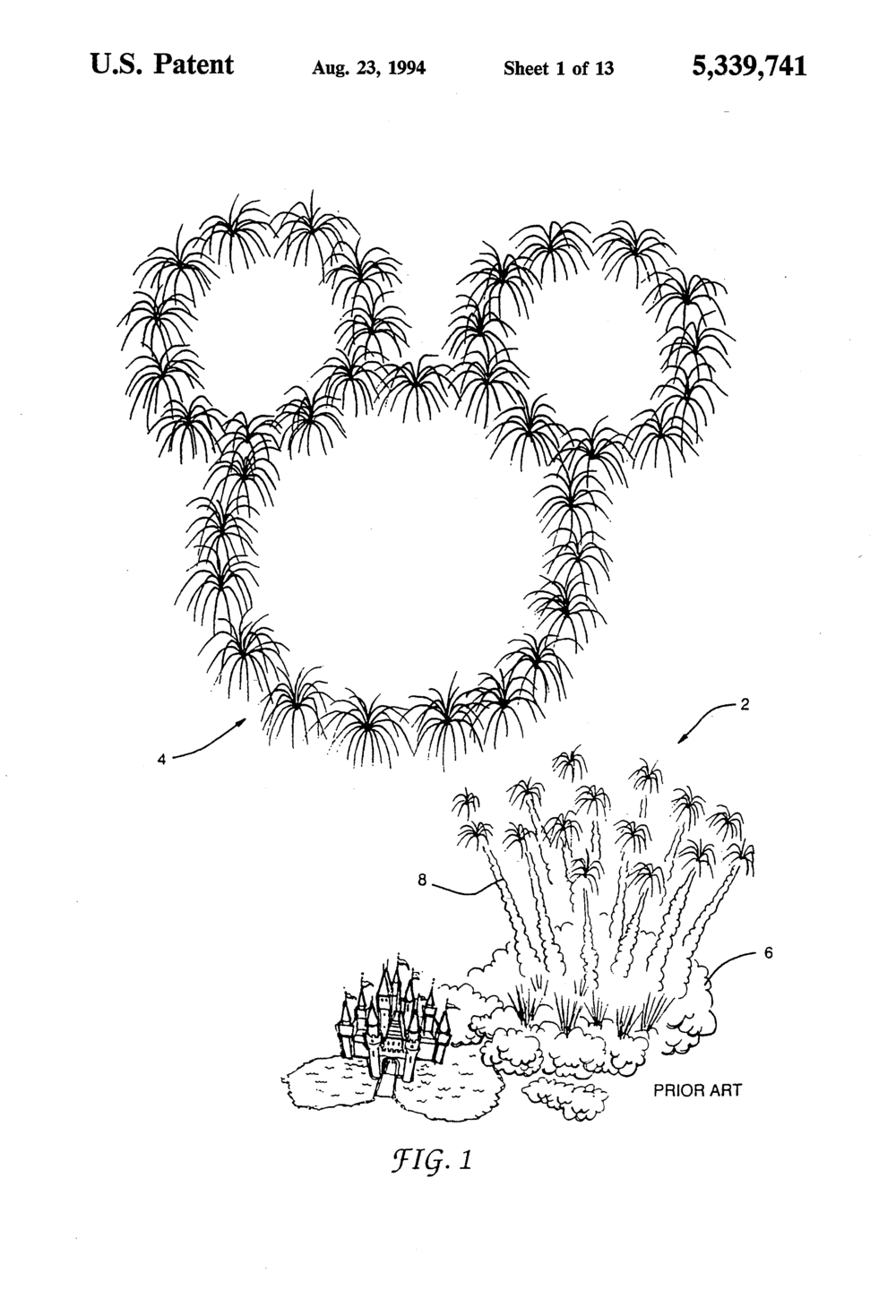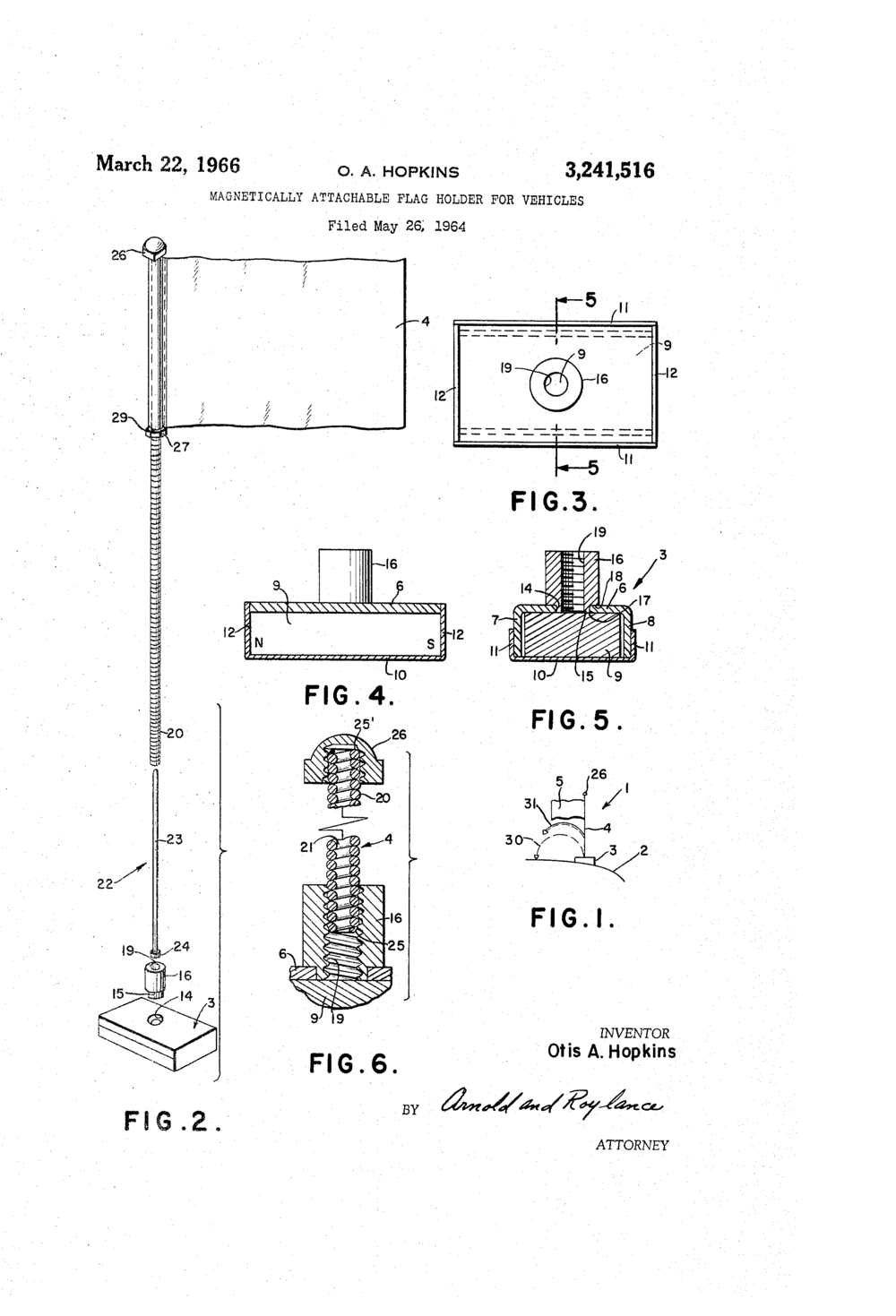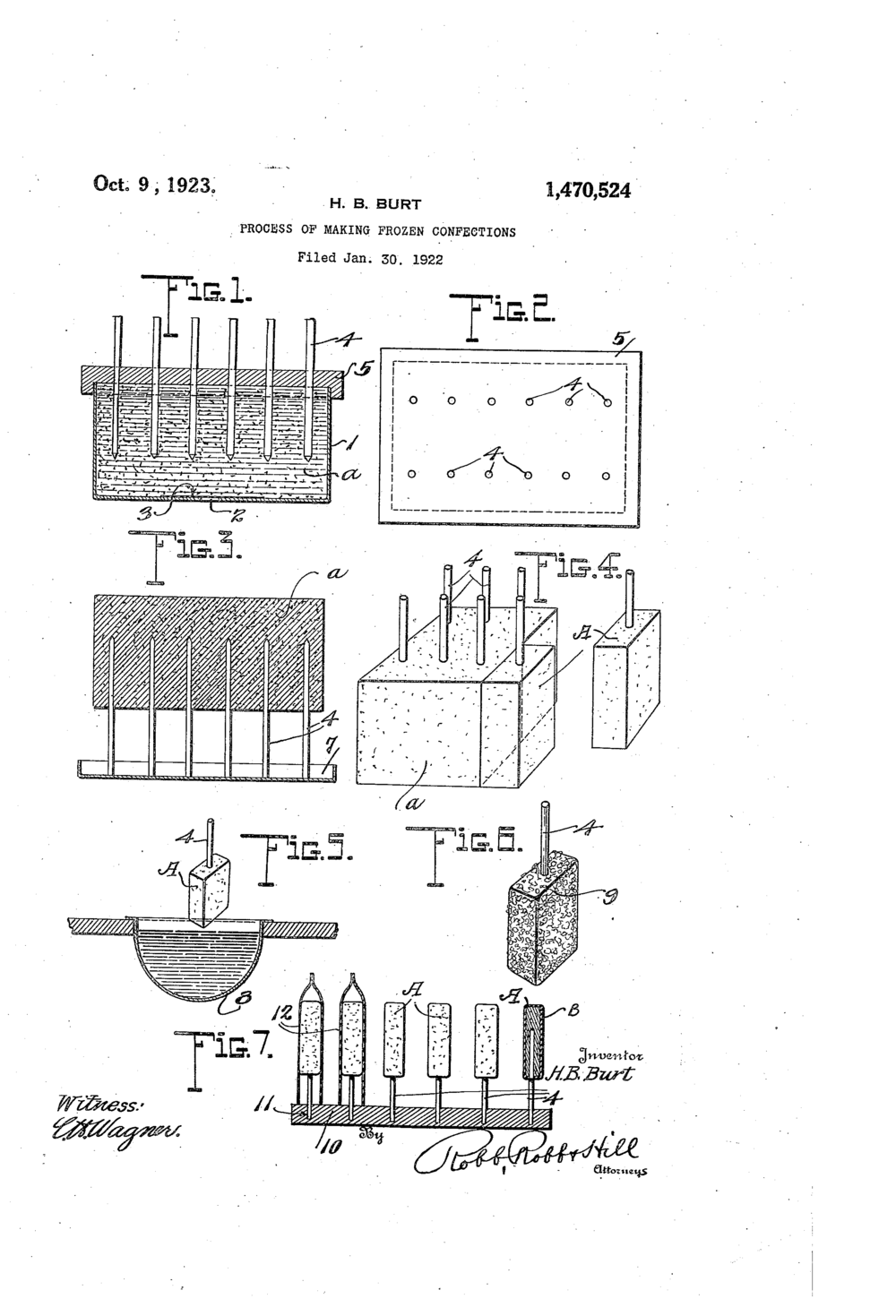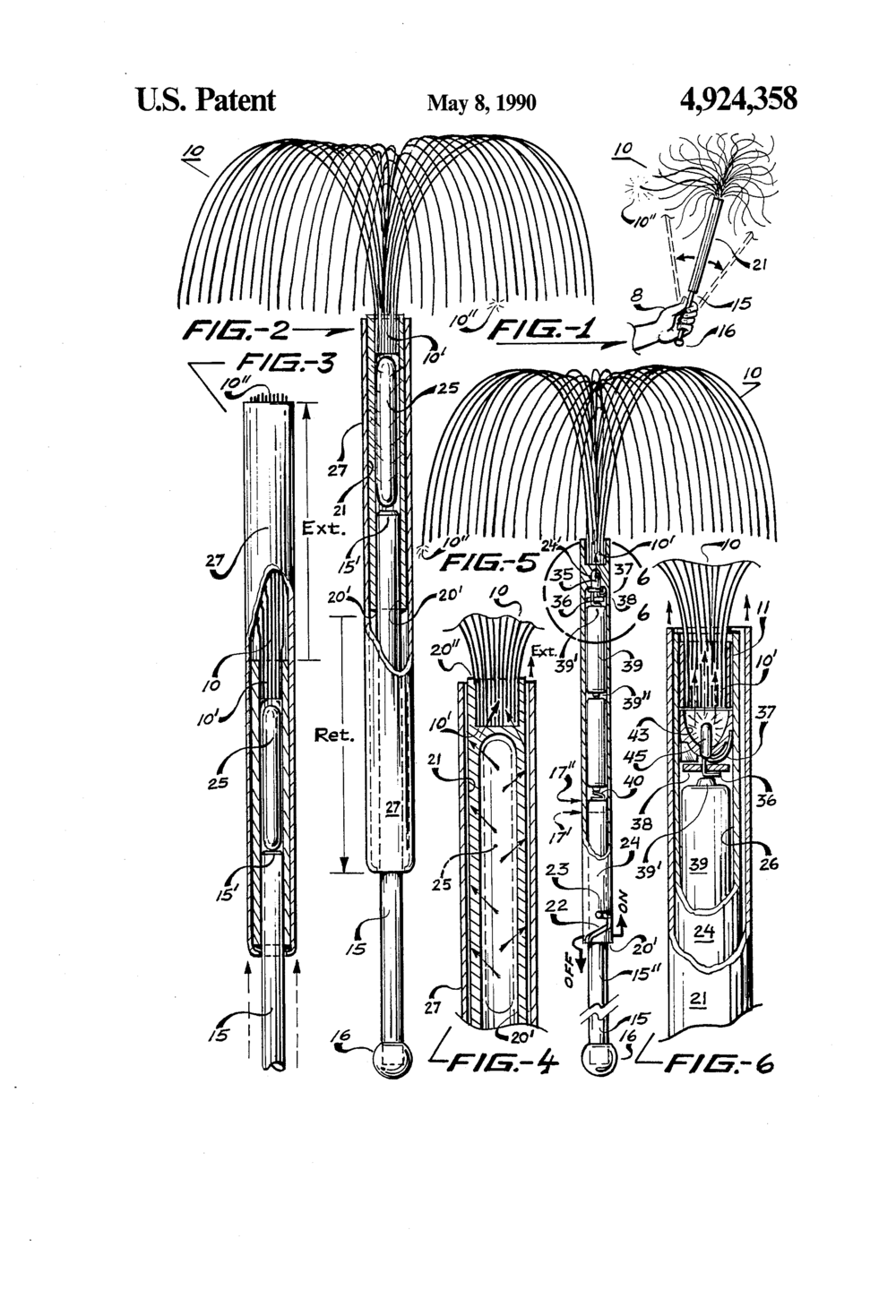Here at Juristat, we occasionally like to take a step back and take a look at patents in a little more jovial manner, especially around major holidays. We've written about fun Fourth of July patents before, but we've got a fresh batch of them for 2017. We hope you enjoy some of the fun patents we found, and that you have a safe and happy Fourth of July.
Precision fireworks display system having a decreased environmental impact
 US5339741A
US5339741A
Nothing says “it’s the Fourth of July!” like a good old-fashioned fireworks display. The problem with old-fashioned fireworks displays, however, was that they weren’t exactly the greenest of technologies, since the traditional method leaves quite a bit of black powder residue scattered across the ground (and any water) surrounding the site. This new method, in addition to being more precise, is more environmentally friendly by eliminating the traditional black powder method of ignition. Thus, what falls to the ground after the shells are exploded are lightweight, inert paper particles that have minimum environmental impact.
Aquatic play equipment
 US2982547
US2982547
July is hot, and, for those without swimming pools, a good option to beat the heat is the classic Slip ’N Slide. The patent that would eventually become the Slip ’N Slide was first granted to Robert D. Carrier in 1961 when he designed the backyard toy after being inspired by a roll of film. Carrier described his invention as
An elongate, flexible, soft, smooth, water-lubricated surface over which a person` can slide or plane, and which is safe, clean, easy and economical to manufacture and maintain. A feature of this invention is to provide an elongate, horizontally disposed film-like strip of flexible material having a smooth upper or top surface, a soft, flexible, and/or resilient support for the strip, and irrigating means extending longitudinally of the strip to distribute a film of lubricating water over the said surface of the strip.
Slip ’N Slides have become quite a bit fancier over the years than the rudimentary model described in this patent, but generations of American children (and, let’s be honest with ourselves—adults, too) have Mr. Carrier to thank for hours of splashy summertime fun.
Mechanically attachable flag holder for vehicles
 US3241516A
US3241516A
The only thing that’s more American than baseball and apple pie is cars—especially large SUVs and trucks. Here in America, we love our cars, so what good patriotic American would not want to display their love for their country everywhere they go? This flag holder makes it easy to do so by attaching to the outside of the vehicle magnetically so that it can be used temporarily for parades, funeral processions, and the like. But if you’re really patriotic, you’ll leave it on all year long.
Portable cooler
 US3161031A
US3161031A
Beat the heat this Fourth of July with a turbo-charged, aluminum-cased, freezable koozie. You simply throw this bad boy the freezer for a few hours to freeze the propylene glycol inner ring, then slip a beer inside it to keep it cold for hours. It probably won’t keep your drink cold for as long as a Yeti, but it’ll get the job done for the vast majority of us.
Patriotic American shopping network
 US20090313088A1
US20090313088A1
Many Americans bemoan the reality that very few of our day-to-day products are manufactured in the United States anymore, looking back with some nostalgia on the days when their local factories were churning in full swing. Fortunately, the enterprising spirit is still very much alive in America, and now there is an e-commerce site that consumers can use to buy products that are locally-produced or locally-manufactured. It works by showing the consumer the percentage of the sale price that the vendor will recirculate back into the local economy, allowing the consumer to make educated purchasing decisions that will benefit their local businesses.
Process of making frozen confections
 US1470524A
US1470524A
Popsicles and other frozen treats are a big part of our Fourth of July celebrations, but did you know that, at the time of their inception, popsicles were the subject of a decade-long, all-American legal battle? It’s true, and this is the patent that started it all. In the early 1920s, Harry B. Burt of Youngstown, OH, developed a frozen confection consisting of a rectangular block of vanilla ice cream coated with a sweet chocolate shell, into which he inserted a stick. He called his concoction the Good Humor Bar, and received a patent for it in October of 1923. Around the same time, Frank W. Epperson of Oakland, CA accidentally left a syrupy drink with a stirring stick in it outside on a freezing night, and by morning, the drink had frozen to the stick. Epperson later recreated this sweet accident, naming it the Popsicle, and received a patent for it in August of 1924. Burt, having received his patent first, believed that his Good Humor patent was broad enough to cover all forms of frozen concoctions on sticks and sued Popsicle for infringement in 1925. After years of fighting in the courtroom, the parties eventually reached a settlement in 1933 (ten years after Burt received his initial Good Humor patent) that split the market between Good Humor, which would have the rights to "frozen suckers or ice cream, frozen custard or the like," and Popsicle, which would pay a licensing fee to Good Humor and would limit its products to those "comprising a mass of flavored syrup, water ice or sherbet frozen on a stick."
Safety-sparkler wand w/chemiluminescent or electric-light illumination
 US4924358A
US4924358A
Everyone’s favorite Fourth of July toy is probably the classic sparkler, but holding a flaming stick in your hand is not always the safest proposition, especially for younger children. Luckily, there is a safety sparkler that conveys the visual illusion of a traditional sparkler but is much safer to use. It works by employing flexible fiberoptic strands that stem outward from the top end of a baton, which also holds the battery and on/off switch for the device. But any millennials reading this will know that the primary utility of this toy is not to recreate a sparkler, but, rather, to sneak up behind one’s friends and tickle them on the back of the neck with it, obviously.
(gradient).webp)
